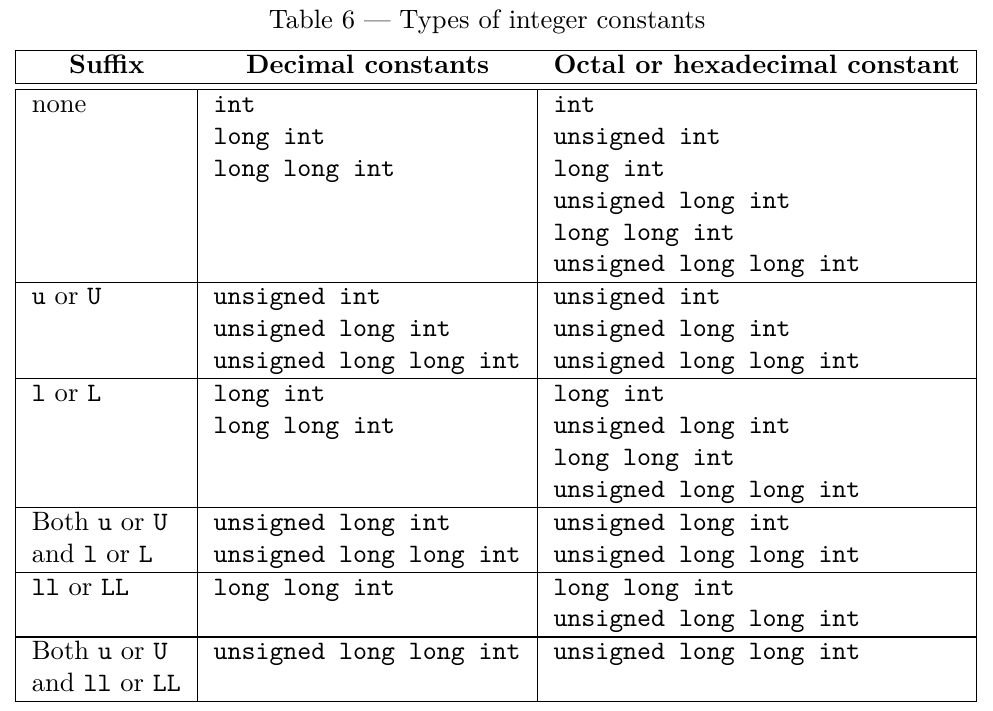In C++, what is the difference between 0xffffffff and 0xffffffffu?
This one’s pretty easy to answer with this information from the C++ standard:
The type of an integer literal is the first of the corresponding list in Table 6 in which its value can be represented.
0xffffffff is a hexadecimal constant, it’s too big to be represented in a (signed) int, so — by the terms of the standard — the type of 0xffffffff is unsigned int.
Furthermore, each of these hexadecimal literals will have a different type:
0x7fffffff // int
0xffffffff // unsigned int
0x1ffffffff // long int (or long long int)
0x1ffffffffu // unsigned long int (or unsigned long long int)
But to answer the original question, there is no difference between 0xffffffff and 0xffffffffu apart from this:
@twoscomplement One is a commonly used curse when the compiler screws up.
— Colin Riley (@domipheus) January 30, 2015
